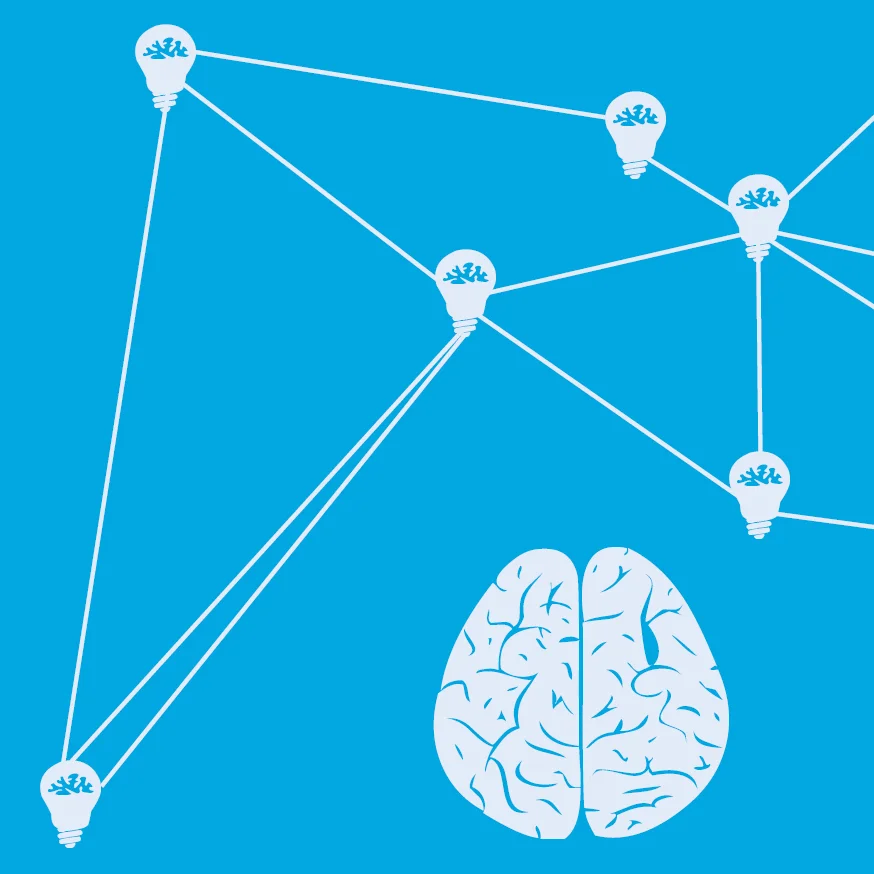In the once separate fields of politics and governance, the narrative is everything. Perhaps more. Mark Kenny from Australian Studies Institute looks how the government controls the storyline across Newstart, refugees and the Uluru Statement from the Heart and concludes it is the ‘back story’ that lends the government legitimacy.
Read MoreThis blog is the first in a series examining narration and renarration as regulation from the School of Regulation and Global Governance (Regnet) at ANU. Here, Miranda Forsyth and Philip Gibbs tell us what we can learn from attempts to curb sorcery accusation related violence in PNG.
Read MoreFeaturing the topic “The use and abuse of evidence in social policy” the 2019 Power to Persuade symposium was held last Thursday. The symposium showcased a range of expert speakers and panellists from government, the community sector and the research community. Below Professor Paul Smyth, one of the symposium panellists and a Power to Persuade Social Policy Whisperer provides his insights into this years symposium.
Read MoreYou may have noticed at your local common a place for wild flowers, attracting a mobile constellation of bees, butterflies, and a host of minibeasts. Honey bees mean different things to each of us: an excuse to reminisce on childhood crayoning, the producer of that delicious syrup we all enjoy as honey, or a symbol of order and harmony in nature. However, they also serve a critical environmental role as a major fruit and vegetable pollinator. In these days of economic and political uncertainty this may not be foremost in policy makers minds, however, bees are vital for our survival and are a living indicator of the health of our environment. In this post, Gino Abdul-Jabbar suggests with honey bees under threat that we need to direct our individual attention and garner collective policy support for the plight of the humble honey bee.
Read MoreIn the wake of reports of service providers' poor conduct towards consumers with cognitive disabilities emerging from the Royal Commission into Banking, the Energy and Water Ombudsman of Victoria and the Essential Services Commission, Dr Yvette Maker and Professor Jeannie Paterson from the University of Melbourne offer two sets of resources here to promote a ‘facilitative’ approach to contracting and consumer transactions for people who have difficulties (or perceived difficulties) with learning, concentrating on, processing, remembering, or communicating information, and/or with decision-making.This piece was originally published by the Consumer Policy Research Centre.
Read MoreA ground-breaking faith-based program in the Pacific seems to be having significant, and hopefully longer-term, impacts on men’s violence and abuse, with several important lessons for similar programs elsewhere, writes Miranda Forsyth, ANU Pacific Institute Convener and Associate Professor at ANU’s School of Regulation and Global Governance.
Read MoreIn today’s post Dr. Archana Voola, Research fellow at University of New South Wales, discusses the societal, community and individual levels factors playing a role in our everyday financial lives. The daily news media depicts stories about the debt crisis, housing un-affordability and sluggish wage growth. But what is actually happening behind these numbers? Who are the humans who make up the data? And what can we do about it? Archana uses her sociological imagination to uncover the icebergs in the financial seascape of Australia.
Read MoreRecent research published by Melbourne Law School offers new insight into the contrasting circumstances of men and women in bankruptcy. In it, Lucinda O’Brien, Professor Ian Ramsay and Associate Professor Paul Ali, each from Melbourne Law School find that public data does not fully reflect the differences between men and women in the bankruptcy system, or the extent to which women’s bankruptcies are caused by gender-specific factors.
Read MoreIt’s a term widely used by politicians, educators, and the media in the UK to describe Black, Asian and Minority Ethnic groups – but we need to be wary of using ‘BAME’, especially within a public health context. Dr Sandhya Duggal draws on her doctoral research to reflect on some of the key issues associated with the term ‘BAME’, with reference to the Indian Punajabi community. Her work highlights two key recommendations – the importance of recognising heterogeneity and multi-generational differences – something ‘BAME’ fails to acknowledge.
Read MoreThe role of animals in supporting mental health and emotional wellbeing is probably not a modern phenomenon. Myers (1998) draws our attention to the book ‘De Canibus Britannicus’, written in the sixteenth century by Dr Cairs in which he advocated the therapeutic use of dogs and recommended that a person afflicted by illness should carry a small dog on their bosom to soak up the disease. In 1699 John Locke prescribed giving children small animals, including dogs, birds or even squirrels, to look after, in order to foster the development of ‘tender feelings and responsibility for others’ (Garforth, 1964, p.154). The assumption was that this would help children to control their innately ‘beast like’ characteristics (Myers, 1998). In the first of her two guest posts this week on Power to Persuade, Dr Alison Broad the Director of Primary Initial Teacher Education examines the question – can animal assisted therapies help to tackle the issues of wellbeing and mental health?
Read MoreMaiy Azize explains the important lessons of Anglicare Australia ‘s recent study of attitudes towards welfare and poverty for how anti-poverty advocates can use language effectively. Boldly stating our support for all people in poverty, as well as focussing on their strength and resilience are two key recommendations.
Read MoreMaiy Azize of Anglicare Australia explains how her recent study of social attitudes shows that Australians are surprisingly empathetic towards people in poverty - and how anti-poverty advocates can campaign and win.
Read MoreThis article from Dr Simone Casey explores why Australia’s Mutual Obligation requirements are so demanding and whether this is based on evidence about what works. It asks why critical research evidence has not received more attention from Australia ‘s activation policy makers. She argues that lack of engagement with critical social research is a limitation which hampers social justice efforts and reflects disregard for social suffering, and says there is plenty of room for stronger engagement with participatory policy design approaches. Dr Casey is an Associate of the RMIT Future Social Services Institute.
Read MoreScholars have, for decades, suggested that organisational amnesia can negatively impact the effectiveness of government agencies. So why do they forget? Maria Katsonis has summarised the findings of Alastair Stark (University of Queensland) for why public institutions may be unable - or unwilling - to access and/or use past experiences to help deliver better public outcomes.
Read MoreIn this post, Zoe Callis, Ami Seivwright, and Paul Flatau of the Centre for Social Impact, University of Western Australia write about the practice of outcome measurement in Western Australia, including its facilitators and barriers. This media release provides a snapshot of the major findings, but readers are encouraged to peruse the entire series. Their research suggests that while efforts to measure social outcomes has increased in the last year, the actual practice has decreased. The main barrier? Funding. But, there are others…
Read MoreKicking off an exciting week of posts from the Public Service Research Group at UNSW Canberra, today’s post from Professor Deborah Blackman (@debbiebl2), Dr Fiona Buick (@fibuick) and Professor Michael O’Donnell explores the ‘seven deadly sins’ of performance management that emerged in their recent research.
Read MoreResearch on marginalised communities has a history of being weaponised against those very communities, marginalising them even further. This weaponisation, and the fear of it, can silence discussion on important social issues. Here, Sandra Elhelw Wright reflects on how this plays out in the context of research on domestic violence in Australian Muslim communities.
Read MoreAs the 2019 New South Wales State election is fast approaching (March 23, 2019), a policy think tank on financial inclusion has proposed an election platform paper with specific state level concerns and possibilities. Jenni Beetson-Mortimer (@BeetsonJenni) who heads up this coalition – NSW Financial Inclusion Network, is our blog contributor today. Jenni is the CEO of Northern Rivers Community Gateway, a registered not-for-profit which provides welfare and community capacity building programs for disadvantaged individuals and communities across NSW and extending to the Far North Coast, New England and Mid North Coast of the state. Located at the forefront of service provision, Jenni bring her experiences, knowledges and collaborative scholarship to persuade NSW policy makers to act on the issue of financial inclusion.
Read MoreThe release of the Royal Commission into Misconduct in the Banking, Superannuation and Financial Services Industry earlier this month has not had the intended effect of allaying mistrust in the financial services sector in Australia. Despite the enormity of the report, nearly 1,000 pages with 24 entities and companies referred to civil and criminal proceedings, there is a consensus that the major financial corporations involved in the misconduct remain unscathed. In today’s post, Dr. Jonathon Louth examines the silences in this report, especially as it impacts the lives of Indigenous peoples living in rural and remote Australia. Based on his recent research with Indigenous Australians in the Northern Territory, he recommends expanding community and cultural literacies in the financial sector as one of the counter measures to tackle systematic dispossession and marginalisation of vulnerable populations. This piece was originally published in The Conversation on 6 February 2019
Read MoreThe recent release of the Productivity Commission’s Report on Government Services 2019 indicates that within the “community services” budget, federal spending on youth justice will be $842.4 million while the child protection services budget will reach $5.8 billion this year. What appears to be missing is significant funding on positive, community-based developmental programs for youth. In today’s post, social worker and professional dancer Anjelika Thwaites reports on the findings of her Honours thesis for Victoria University (and co-supervised by Good Shepherd Australia New Zealand) into the many benefits of investing in arts-based programs for young people.
Read More















